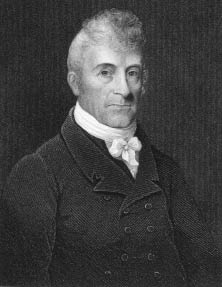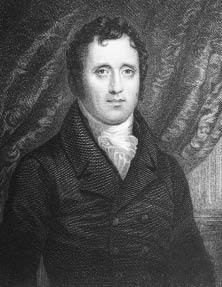Richard Feltoe - Call to Arms: The 1812 Invasions of Upper Canada
Here you can read online Richard Feltoe - Call to Arms: The 1812 Invasions of Upper Canada full text of the book (entire story) in english for free. Download pdf and epub, get meaning, cover and reviews about this ebook. publisher: Natural Heritage Books, genre: Politics. Description of the work, (preface) as well as reviews are available. Best literature library LitArk.com created for fans of good reading and offers a wide selection of genres:
Romance novel
Science fiction
Adventure
Detective
Science
History
Home and family
Prose
Art
Politics
Computer
Non-fiction
Religion
Business
Children
Humor
Choose a favorite category and find really read worthwhile books. Enjoy immersion in the world of imagination, feel the emotions of the characters or learn something new for yourself, make an fascinating discovery.

- Book:Call to Arms: The 1812 Invasions of Upper Canada
- Author:
- Publisher:Natural Heritage Books
- Genre:
- Rating:4 / 5
- Favourites:Add to favourites
- Your mark:
- 80
- 1
- 2
- 3
- 4
- 5
Call to Arms: The 1812 Invasions of Upper Canada: summary, description and annotation
We offer to read an annotation, description, summary or preface (depends on what the author of the book "Call to Arms: The 1812 Invasions of Upper Canada" wrote himself). If you haven't found the necessary information about the book — write in the comments, we will try to find it.
Call to Arms: The 1812 Invasions of Upper Canada — read online for free the complete book (whole text) full work
Below is the text of the book, divided by pages. System saving the place of the last page read, allows you to conveniently read the book "Call to Arms: The 1812 Invasions of Upper Canada" online for free, without having to search again every time where you left off. Put a bookmark, and you can go to the page where you finished reading at any time.
Font size:
Interval:
Bookmark:
T his work would have been impossible to achieve without the support, dedication, and selfless efforts of more people than it is possible to properly credit within this space. Therefore, I must restrict myself to naming but a few, whilst saluting the many.
First, to Diane, my supporting cheerleader, chief-secretary, communications co-ordinator, and long-suffering, understanding, and lonely wife. She who has backed me all the way as I have effectively become a hermit during the course of the years it took to research and write this series. Sorry, Pet, I promise the next one wont be so bad, has been the mantra I have used before on previous single-book projects, but now it needs to be amended to, Sorry, Pet, here we go again times six!
Next, to my friend and fellow historian on the American side of the Niagara River, Pat Kavanagh, who freely and without hesitation gave me unrestricted access to his vast resource collection of American records, official documents, and personal letters on the war. Without his aid and resources, this work could not have been created. I thank you, sir.
Thirdly, I must extend these same thanks to the many dedicated staff members of the numerous museums, archives, and libraries that I visited to undertake the research for this work, who cheerfully assisted my searches to fruition and sometimes revealed previously unknown nuggets of history for me to use.
Penultimately, I cannot fail to acknowledge the guidance and support provided by the whole team at Dundurn Press in turning this idea into a reality.
Finally, I salute the memory of Karen, my friend and guide, who taught me to appreciate Canadas heritage legacy. Always my harshest editorial and literary critic, she was at the same time a staunch supporter and fiercest proponent of the value of my writings. She may not have lived to see this work completed, but her spirit and love of our history and heritage lives on within it.
Threats and Counter-Threats Along the Niagara River,
July to October 1812
A ccording to Secretary of War Eustiss original plan to conquer the Canadas, diversionary attacks upon the Detroit and Niagara frontiers would draw British reserves away from Montreal and Quebec, thus allowing the main American thrust to enter Lower Canada through Vermont against reduced opposition. In reality, the failure of government recruiters to raise any significant military units in New England, coupled with the debacle of General Hull at Detroit, effectively derailed the 1812 American war effort. Desperate to create some kind of military success, the administration pressured General Dearborn to produce positive results on the Niagara front to counter their failures elsewhere. For Dearborn, this came as an unwelcome surprise, for he was hardly aware that the Niagara region came under his jurisdiction, while the quality of the regions commanders had hardly risen to the challenge of the moment. In fact, although it had only been a month since war had been declared, the troops on the Niagara frontier had already been under the command of both Brigadier General William Wadsworth and Major General Amos Hall. On July 13, 1812, they gained their third new commander in the person of Major General Stephen Van Rensselaer.
A member of an influential New York State family, Van Rensselaer had been politically opposed to the prospect of war, but had been manoeuvred into accepting command of the Army of the Centre by his political opponent, the incumbent governor, Daniel D. Tompkins. For Tompkins, this seemingly contradictory act actually held political merit, for although a military victory would bring Van Rensselaer fame and honour, declining the post would brand him as failing to support his country in time of war. Furthermore, accepting the post would handicap Van Rensselaers ability to mount a political campaign against Tompkins, and any military defeat would seal Van Rensselaers political fate entirely.

General Stephen Van Rensselaer, artist unknown. Manipulated into a command he did not want, he later became the scapegoat for the American defeat at Queenston.
Library and Archives Canada, C-007796.

New York State Governor, Daniel D. Tompkins. Political opponent of General Stephen Van Rensselaer, he used the generals defeat at Queenston to win re-election.
From the Conger Goodyear Manuscript Collection, Vol. 9. Courtesy of the Buffalo and Erie County Historical Society Research Library, Buffalo, NY.
During the remainder of the summer, once he saw the task before him, Van Rensselaer was in a constant state of alarm that Brock would take the initiative and attack across the Niagara River, a circumstance for which he believed there was no effective defence:
Sir At this hour I have received no reinforcements of men, no supplies of ordnance, tents nor ammunition. There are not ten rounds per man on the Niagara frontier, nor have we lead to make cartridges. We are extremely deficient of medicine and hospital stores; of lint and bandage cloth we have none, nor any surgical instruments. The company lately under the command of Captain Jennings in Lieutenant Col. Swifts regiment had become so clamorous for pay, and contended so strenuously that their time had expired, that I have ordered them to be dismissed.
Major General Van Rensselaer to Major General Dearborn, September 1, 1812
Under these circumstances, orders that had previously been issued to the various posts not to stir up any unnecessary trouble were reissued, a command that at least one detachment of over-enthusiastic young volunteers serving at the newly constructed Fort Tompkins, near Black Rock, found themselves unable to obey, with inevitable consequences.
I commanded the gun that threw the first ball at the enemy [on August 13, 1812] until now we had not been permitted by our superiors to get up any quarrel with our neighbours, and were not allowed to fire a gun except with blank cartridges for the purpose of practice, and we were tired of lounging and doing nothing. So accordingly the British came near the river and commenced building a battery with some 30 or 40 men. Now the question was, should we permit them to do it? We could do nothing unless slyly done, orders being against us. However, it seemed most too much to allow our enemies to erect machines immediately under our noses to kill us with. We accordingly consulted as to whether we were able to get a ball to the gun unknown to our officers. After waiting for a favourable opportunity, the ball went in, unknown to any except those engaged in it. Our next business was to gauge the range with the view to have the ball fall short of them, as we did not desire to kill them, but merely to drive them away. All things being ready, the match was applied, BANG! went the gun. The ball struck where we intended. The British were so completely enveloped in smoke and dust that not one of them could be seen, but as soon as they could be, we found them running in every direction. To complete the mortification on their part, we took off our chapeaux and gave them three cheers. When our officers made inquiries who had disobeyed orders, no one knew anything about it. They did not try very hard to find out. Now as each party was waiting for the other, the restraint was removed. The next morning, the British opened upon us with long guns. The balls that went over our battery would take out our barracks, which were in the rear. They were built of poles, and before night not one pole was left upon the other.
Font size:
Interval:
Bookmark:
Similar books «Call to Arms: The 1812 Invasions of Upper Canada»
Look at similar books to Call to Arms: The 1812 Invasions of Upper Canada. We have selected literature similar in name and meaning in the hope of providing readers with more options to find new, interesting, not yet read works.
Discussion, reviews of the book Call to Arms: The 1812 Invasions of Upper Canada and just readers' own opinions. Leave your comments, write what you think about the work, its meaning or the main characters. Specify what exactly you liked and what you didn't like, and why you think so.
